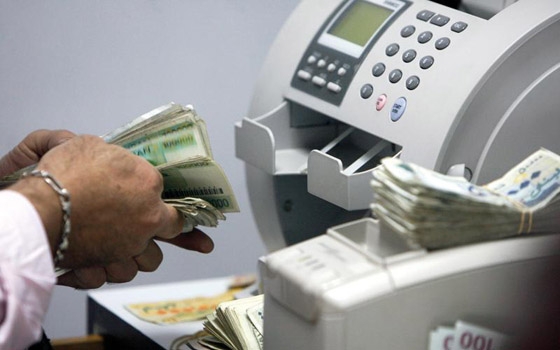Senior banking officials have been talking up Lebanon’s banking sector, pointing to strong reserve positions and its continued resilience. However, recent results suggest 2013 may be a somewhat leaner year for lenders, as regional unrest and domestic political tensions combine to sap consumer and business confidence.
On January 30, Haroutioun Samuelian, vice-governor of the Central Bank of Lebanon (CBL), said the financial sector was in a sound position going into 2013, largely due to the reserve’s own firm grip.
“The CBL has mastered the global rules of the game and deepened the sector’s immunity to the repercussions of the ongoing financial crisis,” Samuelian said. “The Lebanese financial sector is safe, thanks to measures taken by the CBL.”
Among the measures referred to by Samuelian was the requirement for Lebanese banks to increase their capital adequacy ratios to 12%, in line with the standard set by Basel III. Another was the CBL’s push to have local lenders strengthen their foreign reserve holdings, which Samuelian said currently stood at $36bn.
The strong position of Lebanon’s commercial banks, coupled with a slowing of the national economy, has prompted the CBL to push for an increased flow of cash into the market, with the reserve issuing a memorandum in the middle of January, calling on banks to step up lending to industry and other productive segments of the economy.
In mid-January, the World Bank lowered its estimate of Lebanon’s economic growth for 2012, cutting its projections for GDP expansion from 2.8% to 1.7%. This was less than half the expected rate of growth for the rest of the Middle East and North Africa region and below the CBL’s estimate of 2%. Many of the reasons cited by the World Bank for the slower-than-expected expansion in 2012 will likely still be in play in 2013, as the unrest in Syria threatens to again weaken the confidence of foreign investors and push up inflation.
To help achieve growth, the CBL said in its January 18 memo that it would offer commercial lenders credit facilities with just 1% interest, which would allow them to provide loans to borrowers at rates of no more than 6%. The plan aims to increase consumer spending and stimulate activity in the property market, which has scaled back over the past year due to the economic slowdown and political uncertainty. The CBL has said it expects the capital injection to boost GDP growth by between 2% and 3%.
Lebanon’s banks would welcome an increase in economic activity, as many of the sector’s leaders saw earnings ease in 2012. The five listed banks recorded net profits of $1.01bn last year, up from $986m in 2011, an increase of 2.4%, better than the general rate of economic growth. However, the figures are inflated by Bank Audi’s sale of its insurance arm to Morocco-based policy writer Saham Finances in June, which added $44m worth of black ink to its ledgers.
Lebanon is due to go to the polls in June, though currently reforms to the electoral regulations are stalled, with the two major blocs in parliament at odds over changes to voting procedures. Should this stalemate continue and delay the general election, this could add to the existing climate of political tension, further sapping consumer confidence and business activity.
Joseph Torbey, president of Lebanon’s Association of Banks, has warned that continued political tension, along with the conflict in Syria, would affect the banks, though he believed the finance sector had the strength to shake off any impact.
“A prolonged political and economic crisis in the long run would undoubtedly weigh negatively on all economic sectors, with the banking sector being no exception,” he said in an interview with The Daily Star in early January. “Nevertheless, we do not expect any worsening economic conditions in 2013 from the aggravation of the Syrian crisis and its spillover on Lebanon, given that the Lebanese economy has successfully absorbed the drawbacks of such uprising with resilience.”
It will be a few months before the next round of bank results are released, which will give a better indication of what direction the sector is taking and whether the CBL’s stimulus program has had the desired effect. Despite the crisis across the border and the uncertainty over the forthcoming general election, Lebanon’s banks have demonstrated their ability to weather both internal and external shocks, an asset that may prove useful in 2013.
Oxford Business Group
20 February











































































